Mashiko Town , Tochigi栃木県益子町
Living in Mashiko Town, Tochigi
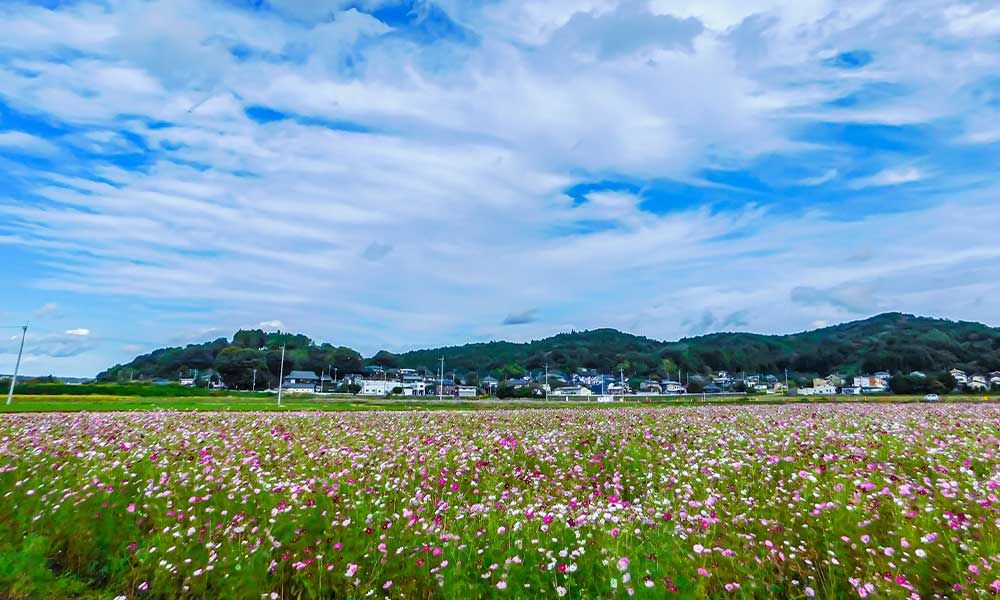
We have Summarized the livability of Mashiko Town, Tochigi.
EASTERN AREA県東地域
CONTENTS
- What kind of place is Mashiko Town?
- Mashiko TownPR video
- How is the traffic situation in Mashiko Town?
- How are the rent and land prices in Mashiko Town?
- How is childcare and education in Mashiko Town?
- How about shopping in Mashiko Town?
- How about jobs and recruitment in Mashiko Town?
- Mashiko Town’s unique subsidy/subsidy system
What kind of place is Mashiko Town, Tochigi?
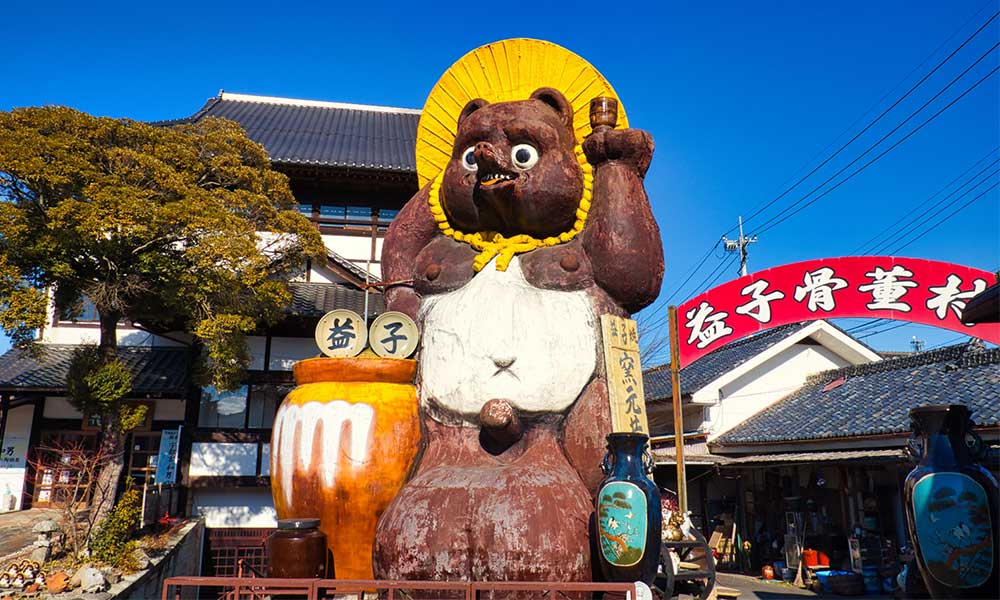
Mashiko Town is popular with tourists as a pottery town, and is also attractive for its rich natural environment and local community activities.
Mashiko Town is located in the southeastern part of Tochigi Prefecture, covering an area of approximately 89.4 square kilometers. It is bordered by Shibukawa Town to the north, Mogi Town to the east, Sakuragawa City in Ibaraki Prefecture to the south, and Moka City to the west. The population is about 20,000, with around 7,000 households (as of December 2023). Situated in the northeastern part of the Kanto Plain, the southern area features mountains and hills belonging to the Kyozuka Mountain Range, while the eastern part is home to mountains including Mount Amamaki. The western area is traversed by the Kai River, which flows from north to south, creating plateaus and lowlands that form residential neighborhoods. The annual average temperature is 14.5°C, making it warm, but summers can be hot with frequent thunderstorms, while winters experience significant temperature variations and dry winds. Although snowfall is minimal, it accumulates several times a year, making studded tires essential in the region.
The origin of Mashiko pottery, known as Mashiko-yaki, can be traced back to the late Edo period when Otsuka Keizaburo, who learned techniques in Kasama, established a kiln here. Since then, it has developed as a production center for everyday items such as pots and water jars, thanks to the excellent clay sourced from the region. In 1924, Shoji Hamada moved to this area and, along with Yanagi Soetsu, promoted the Mingei Movement, which elevated Mashiko pottery to an art form. Today, there are around 250 kilns and about 50 pottery shops, and the “Mashiko Pottery Market” is held twice a year in spring and autumn, solidifying its status as a pottery-producing area. Mashiko Town is home to seven nationally designated important cultural properties, including the Nishi-Amyoji Three-Story Pagoda and the Romon Gate. Numerous tangible and intangible cultural properties, including medieval castle ruins and traditional performances such as Kagura and Shishimai, remain in the town. The Nishi-Amyoji Temple, a historical temple of the Shingon sect with national cultural property designations such as the “Romon,” “Three-Story Pagoda,” and “Main Hall Inner Shrine,” is said to have been founded by Kibi Aramaro around 729-749 AD. Additionally, the “Enma-do,” designated as a Tochigi Prefectural Cultural Property, is known for its unusual appearance with a bright red face and wide-open mouth, earning it the nickname “Laughing Enma,” making it popular among visitors.
PR video of Mashiko Town, Tochigi
Tourism promotion video for Mashiko Town, Tochigi Prefecture
Mashiko Town, Tochigi Prefecture Soil Festival PV
Sunflower fields 2019, Mashiko Town, Tochigi Prefecture
How is the traffic situation in Mashiko Town?
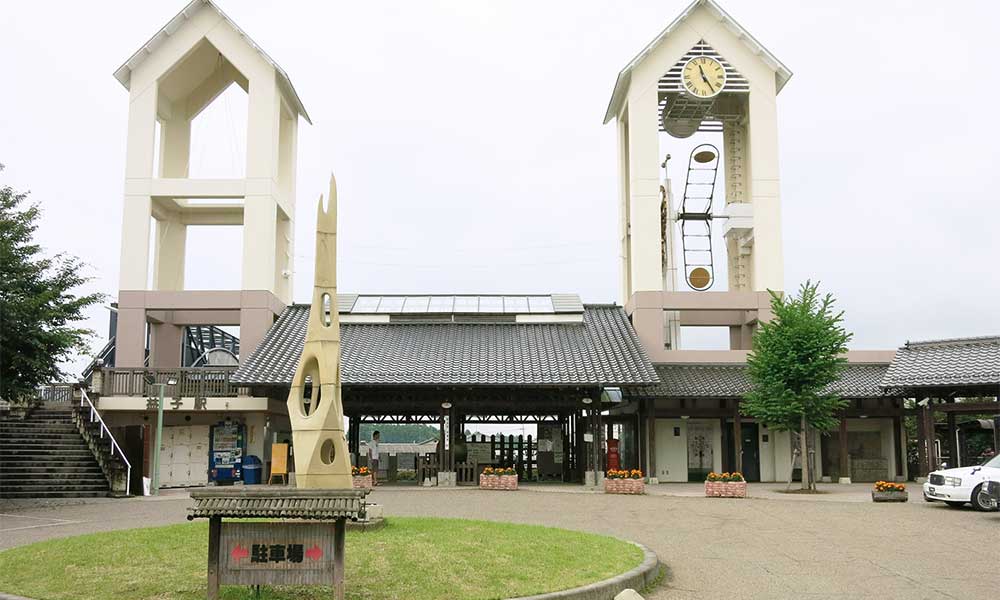
Mashiko Town has excellent public transportation and easy access to the city center.
Mashiko Town is served by the Moka Railway, which connects Moka City on the west side of the town to Ichikai Town and Mogi Town on the north side, and has Mashiko Station and Nanai Station.
The main road in Mashiko Town is National Route 121, which runs from Moka City and branches into National Route 123 and National Route 294 in Mashiko Town. National Route 123 runs through Haga Town on the northwest side, and National Route 294 runs through Mogi Town on the northeast side.
Kanto Bus and Ibaraki Kotsu operate local bus routes within Mashiko Town. You can also use the express bus that runs from Mashiko Station to Akihabara Station.
The roads are well-maintained, making it easy to travel by car to nearby areas. There are express buses that go directly to Akihabara, so you can also use them for sightseeing in Tokyo.
There are few public transportation options, and trains and buses run infrequently. Living without a car is inconvenient.
How are the rent and land prices in Mashiko Town?
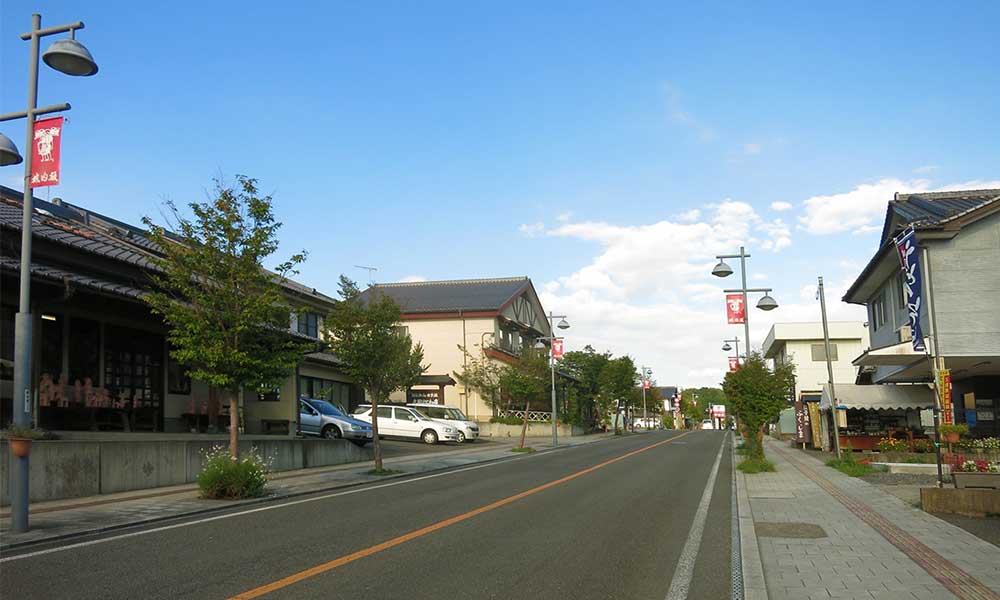
Mashiko Town is a town with many spacious detached houses, where you can purchase new and used homes.
According to information on a real estate information website, the average rent in the city for a newly built apartment within a 10-minute walk from the station is about 51,000 yen for a 1K and 61,000 yen for a 2DK. The average land price per tsubo is about 70,000 yen per tsubo. Mashiko Town is rich in nature, with fields and beautiful scenery surrounding the town. There are detached houses, apartments, and rental properties in residential areas, but since the land can be relatively large, detached houses are common for families.
Land prices are relatively low, so you can build your dream home by ordering a custom-built house. You can live in a quiet and calm environment, and enjoy a stress-free, peaceful life.
Due to limited transportation options, commuting to or from the city center can be time-consuming and expensive.
How is childcare and education in Mashiko Town?
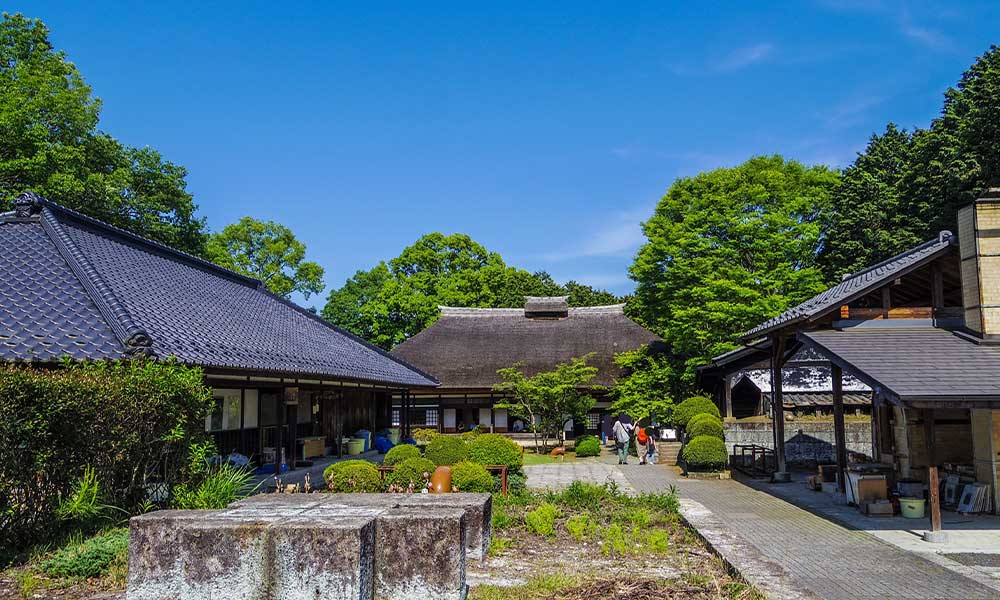
Mashiko Town is a town that actively supports child-rearing, with the cooperation and support of local people.
In Mashiko Town, there are 5 nursery schools, 3 kindergartens, 4 elementary schools, 3 junior high schools, and 1 high school. The Child Medical Expense Subsidy Program covers children under 18 years old (until March 31 of the year they turn 18) for both outpatient and inpatient care, providing full financial support. Child allowances are provided as follows: ¥15,000 for children under 3 years old, ¥10,000 for the first and second child aged 3 years to before entering elementary school, ¥15,000 for the third child and beyond, and ¥10,000 for middle school students.
Mashiko Town has its own support programs as well. The Maternity Preparation Allowance (Welcome Baby Allowance) provides ¥30,000 for each baby to pregnant women who have passed 22 weeks of pregnancy. Additionally, as a childbirth gift, new parents receive wooden toys or tableware made by local artisans through . The Child-Rearing Support Allowance offers ¥10,000 worth of local currency for each child up to 18 years old, which can be used for various shopping at local stores (1,000 Masshi × 10 notes). Furthermore, for the year before entering elementary school, families receive ¥30,000, and for the year before entering junior high school, they receive ¥50,000. There is also a Child Seat Purchase Subsidy Program, which provides half the cost (up to ¥10,000) for purchasing child seats for households with children under 6 years old. Other programs include the Exemption from Food Expenses and Subsidies for Purchasing Diapers.
As part of its child-rearing support initiatives, Mashiko Town offers facilities like Mashikokko House, where parents and children can gather to play freely with indoor play equipment and interact with others. The Mashiko Town Child-Rearing Generation Comprehensive Support Center also supports families, reflecting the town’s commitment to actively assist the child-rearing generation.
There is a wide range of support and subsidies available for childcare. There are almost no children on waiting lists for childcare facilities, so you can work without worry.
There are few educational institutions, cram schools, or facilities for extracurricular activities.
How about shopping in Mashiko Town?
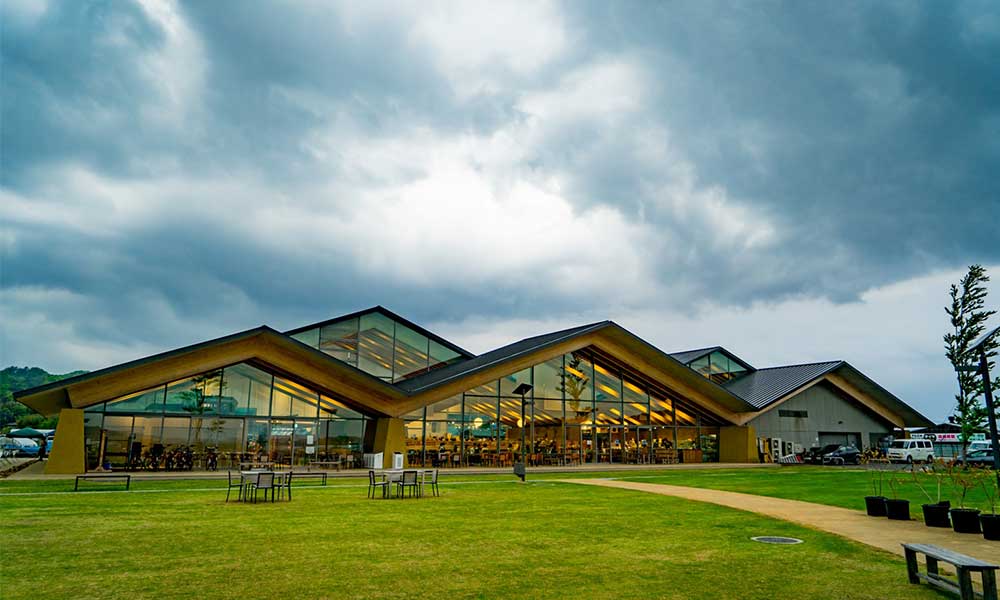
Mashiko Town is a town with everything from supermarkets to roadside stations, so you won’t be short of daily necessities.
In Mashiko Town, there are no large shopping malls or department stores, but you can find various shopping facilities such as small to medium-sized supermarkets, electronics retailers, and roadside stations mainly around Mashiko Station, along National Route 121, and along Prefectural Route 230. The Michi no Eki Mashiko features a stylish glass exterior and is a popular spot where you can find local traditional crafts like Mashiko pottery, as well as fresh vegetables and processed goods from the area. During the strawberry picking season, you can enjoy unlimited strawberry picking just a minute’s walk away at “MASHIKO STRAWBERRY FARM.” Additionally, there are about three supermarkets within the town.
Shops are scattered along the main roads, so it’s convenient to go shopping if you have a car. You can get locally grown vegetables at roadside stations.
There are no big shopping malls where you can get everything in one place.
How about jobs and recruitment in Mashiko Town?
Mashiko Town is a town with thriving industries that make use of its characteristics and resources related to pottery, tourism, and agriculture.
The average annual income in Mashiko Town is 2.88 million yen. The main industries in Mashiko are agriculture and tourism. There are also job opportunities related to the traditional craft of Mashiko pottery. In agriculture, rice, strawberries, and eggplants are actively cultivated. While there are a certain number of job openings in agriculture, the town offers various support for households considering starting a new farming business. The Mashiko Town New Farmer Support Subsidy Program provides rental assistance (up to half of the monthly rent, with a maximum of 20,000 yen) and subsidies for purchasing agricultural machinery (up to half of the cost, with a maximum of 1 million yen) and seeds (up to half of the cost, with a maximum of 50,000 yen) for new farmers starting agricultural operations in the town.
The Mashiko Agricultural School offers training for households wanting to start new agricultural ventures in Mashiko, covering vegetable cultivation techniques and soil preparation, along with visits to local farmers. The classes are held on weekends, making it easier for working individuals to participate.
Additionally, there is ample support for those aspiring to become potters and inherit the techniques of Mashiko pottery. The Local Industry Development Subsidy aims to support young artisans who will carry on the next generation of Mashiko pottery, offering rent assistance (one-fourth of the rent, up to 120,000 yen/year) and support for necessary pottery equipment costs (up to half of the rental costs, capped at 120,000 yen/year) and installation costs (including repair costs, up to half, capped at 500,000 yen) for three years. Eligibility includes plans to move to Mashiko and being under 40 years of age.
Furthermore, there are systems such as the Entrepreneurship Support Subsidy Program, which subsidizes part of the business costs (up to 1 million yen, within one-third of the initial investment costs) for those establishing new offices in the town, and the Office Rent Subsidy, which covers part of the rental fees (up to 720,000 yen, within half of the rent, capped at 30,000 yen/month for up to 24 months) for those starting a business in rented office space in the town, making it an ideal region for aspiring entrepreneurs.
Pottery, tourism, and agriculture are at the core of the local economy, so there are job openings in related industries such as pottery classes and pottery manufacturing factories.
Being far from urban areas can mean longer commute times and increased travel costs, so you should take commute constraints into consideration when applying for jobs in urban areas.
Mashiko Town, Tochigi’s unique subsidy/subsidy system
Mashiko Town, Tochigi’s unique relocation assistance and relocation subsidy system
| Relocation support funds Mashiko Town Young People’s Residence Promotion Housing Development Subsidy |






